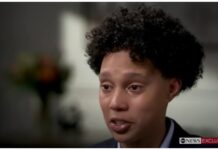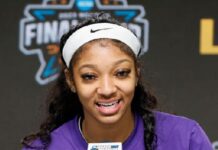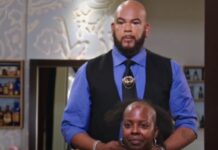*We blame the 1 drop rule for this. And before we continue, we certainly are NOT dismissing biracial people, or denying their Blackness. We simply believe that when people, especially Black people, have to ask “How do you define Blackness?” then it, sadly, proves that Black people have failed at protecting their own image, and so the question becomes: Do we have the right to be mad at the image above?
After all, anyone with 1 drop of Black blood can claim Black/Africa, right? So what’s the big deal with Teen Vogue using fair-skinned models in its African braids feature?
It’s 2015, and the Fair Maiden is the New Black, and no one seems to be refuting this. The erasure of the dark-skinned Black woman in media continues, and we can’t help but to wonder if Blacks share some blame in this, considering many of us are quick to elevate and celebrate anything light-to-white before our own image.
Many claim Amber Rose and the Kardashians are Black women, so why are we shocked when their image replaces that which we can truly identify with?
Teen Vogue received harsh, and well deserved criticism, for excluding identifiable dark-skinned models in an article about Senegalese twists; a hairstyle popular among African American women.
The June/July issue includes a personal anecdote by the magazine’s beauty and health director Elaine Welteroth. In the piece, she writes about having her hair braided in Rwanda and the reaction she received on her return to New York City.
While Welteroth, who is black, uses her own pictures in the online edition of the story, the print version prominently features biracial model Phillipa Steele and only cites white and fair-skinned biracial women as examples of “Plaited Ladies”.
Welteroth, who wrote the article, tried to defend the choice of model on her Instagram page, asking: “How do you define black?” she writes in response to one poster. “Just curious. Is it about skin color? Eye color? Hair texture? I ask because this mixed race model is as black as I am. Also, how do you define cultural appropriation? I ask only because I want to better understand your point of view.”
Many felt her response missed the point about the magazine deliberately choosing fair-skinned models.
One comment summed it up perfectly for us, “Why can’t I look in a magazine and see models who look like me?”
Why? Well, it’s because they want to erase the authentic image of Black womanhood.
The omission of darker skinned women, while celebrating hairstyles so closely linked to the black community, immediately caused a stir on social media.
We Publish News 24/7. Don’t Miss A Story. Click HERE to SUBSCRIBE to Our Newsletter Now!










